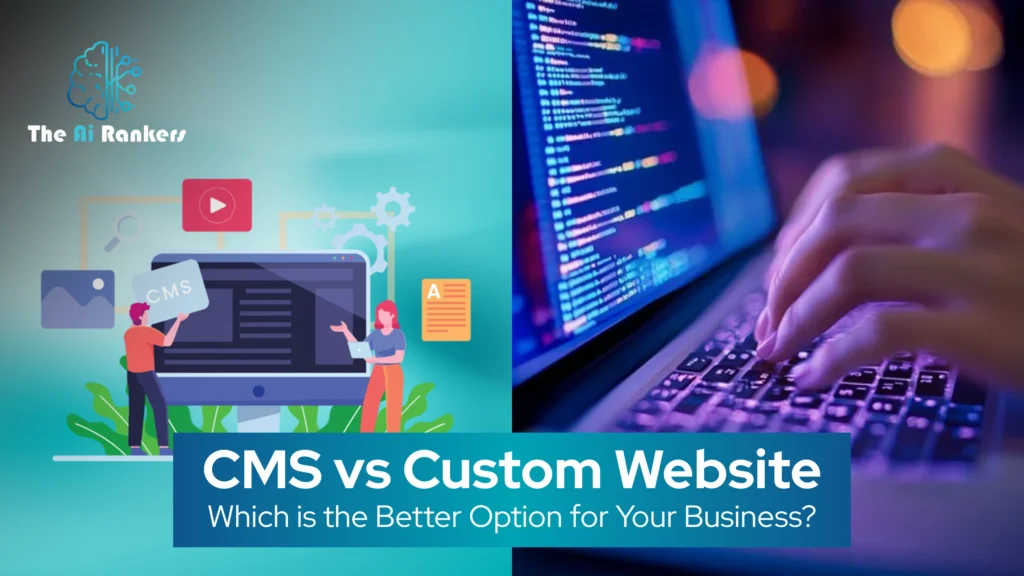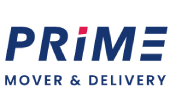
When it comes to building a website for your business, the choice between a Content Management System (CMS) and a custom-built website can feel like standing at a crossroads. Each path promises great things, but which one is the right fit for your needs?
Well, let’s figure it out, have some fun along the way, so that you can decide which option gives you the best bang for your buck (and your time). By the end of this journey, you’ll know whether a CMS is your trusty sidekick or if a custom-built website is the superhero your brand deserves.
What is a CMS?
The Basics: What Does CMS Stand For?
A Content Management System (CMS) is software that allows you to create, manage, and modify content on your website without the need for specialized technical knowledge. It’s like a digital toolbox, packed with easy-to-use tools that empower you to create and edit content at your convenience.
Some of the most popular CMS platforms out there include WordPress, Joomla, and Drupal. These systems come with built-in themes, templates, and plugins, making it incredibly easy to launch a website, even if you’re not a tech wizard.
How Does a CMS Work?
Think of a CMS as a website’s engine, steering the car while you control the direction. It enables you to manage everything from your website’s design and structure to adding and updating content. Here’s a brief breakdown of how it works:
- Themes and Templates: These are pre-designed layouts that you can modify to suit your brand.
- Plugins: These are additional features you can install to add new functionalities (like forms, e-commerce, or social media integrations).
- Media Management: Upload and manage your images, videos, and documents effortlessly.
- User-Friendly Dashboard: Most CMS platforms offer an intuitive dashboard where you can make updates without having to touch a single line of code.
In short, a CMS is for those who want a website up and running fast without the hassle of coding from scratch.
What is a Custom Website?
The Basics: Building from Scratch
A custom-built website is a website that is designed and developed from the ground up specifically for your business. There are no pre-made themes or templates. Instead, everything is handcrafted to your exact specifications, making it truly unique. You get the freedom to create any design, feature, or functionality that fits your brand perfectly.
Custom websites are typically built using coding languages like HTML, CSS, JavaScript, PHP, and more. You can choose to have the website created by an in-house team or hire a web development agency to bring your vision to life.
How Does a Custom Website Work?
With a custom-built website, you start with a clean slate. You or your developer can design the user interface, create the database, and integrate any features your business needs. There’s no need to conform to pre-set templates, so the possibilities are endless.
Here’s a quick overview of how custom websites work:
- Planning & Design: From wireframes to high-fidelity designs, your website is tailored to your specifications.
- Development: Developers write code that makes your website functional, scalable, and adaptable.
- Backend & Frontend Integration: Developers create custom databases and integrate user interfaces that are both visually appealing and fully functional.
- Unique Features & Customization: Want something unique? Whether it’s a custom user dashboard, complex e-commerce features, or an intricate booking system, a custom website can handle it.
In essence, a custom website is the ultimate in flexibility and creativity, offering the most control and scalability for your business.
CMS vs Custom Website: The Main Differences
1. Flexibility and Customization
CMS: Limitations, But Quick Setup
While CMS platforms come with a lot of pre-made themes, templates, and plugins, their flexibility can sometimes feel like being in a box. Sure, there’s a lot you can do, but you might find yourself working around certain constraints. Want a specific feature or functionality that isn’t available in the plugin marketplace? You may need to compromise or rely on third-party solutions.
On the flip side, CMS platforms allow for quick setup. With pre-built templates and drag-and-drop editors, you can have a functional site up in no time without worrying about coding. So, if speed and convenience are your main concerns, a CMS could be the way to go.
Custom Website: Full Creative Control
When you opt for a custom website, you’re free to create something completely unique. No templates, no pre-set themes, just a website that’s 100% tailored to your needs. If you can dream it, developers can build it. Custom websites are perfect if you need a completely one-of-a-kind solution, offering you full control over design, functionality, and features.
However, this kind of flexibility comes at a cost, both in time and money. Building a custom website from scratch can be time-consuming and expensive. It requires collaboration between designers, developers, and often other stakeholders, which can extend the timeline for launch.
2. Cost and Budgeting
CMS: Low Initial Cost, High Maintenance Costs
A CMS usually comes with a low initial cost. Most platforms like WordPress or Joomla are free to use, with premium themes and plugins costing extra. You can choose to host your website with low-cost hosting providers and maintain it on your own (if you’re comfortable doing so). In many cases, CMS platforms are highly affordable and perfect for small businesses or startups on a tight budget.
However, as your business grows, the cost of maintaining a CMS website can increase. Premium plugins, advanced security features, and scaling infrastructure can add up over time. Additionally, CMS websites require regular updates, which can increase maintenance costs.
Custom Website: Higher Initial Cost, Lower Maintenance Costs
Custom websites generally come with a much higher upfront cost. The entire website needs to be designed, developed, and tested, and often requires ongoing maintenance, especially if you want to add new features. However, because you’re building everything from scratch, you don’t need to worry about third-party plugins or the restrictions of pre-built themes.
If you already have a strong design concept and know exactly what you want, a custom website can be an investment that pays off in the long run. Once it’s built, ongoing maintenance is usually limited to things like server costs, security updates, and occasional tweaks.
3. Speed of Development
CMS: Fast, Efficient, and Ready to Go
If you need a website fast, CMS platforms are unbeatable. With ready-to-use templates, themes, and plugins, you can launch your website in a matter of days (or even hours). You don’t need to hire an entire development team—just pick your theme, install your plugins, and you’re good to go.
However, there’s a catch. Because you’re relying on pre-made templates, you may face limitations in how customized your website can be. If you want specific features that aren’t available in the plugin marketplace, you might need to hire developers, which can increase the overall development time.
Custom Website: Takes Longer, But It is Worth It
Developing a custom website takes more time. The process usually involves multiple stages: planning, design, development, testing, and deployment. The timeline depends on the complexity of the website, the number of features, and the collaboration between different teams.
A custom website will take longer to build, but it allows for unlimited customization. If you’re after a unique design or specific functionality, custom-built websites offer the most flexibility, though they will require more patience and time.
Why Choose CMS?
1. Faster Launch
For businesses that need a website up quickly, CMS platforms are the best choice. With built-in templates and plugins, you can launch a functional, user-friendly website in a fraction of the time it would take to build a custom website.
2. Lower Initial Cost
CMS platforms generally have low to no upfront costs. Most are free to use, with the option to pay for premium themes and plugins as you go. This makes CMS an attractive option for startups and small businesses with a limited budget.
3. Ease of Use
You don’t need to be a developer to work with a CMS. These platforms are designed to be user-friendly, offering intuitive drag-and-drop editors and easy-to-navigate interfaces. You can make updates, post new content, and even tweak your design without touching a single line of code.
Why Choose a Custom Website?
1. Unlimited Customization
If you want a truly unique website with no limits, a custom website is your best option. Whether you need specific features, advanced functionality, or just want something visually different from the norm, custom websites offer complete flexibility.
2. Scalability
As your business grows, so should your website. A custom website allows you to scale without worrying about the limitations of a CMS. You can add features, redesign parts of the site, or integrate new technologies as your business needs evolve.
3. Long-Term Investment
Though the initial cost is higher, custom websites can be more cost-effective in the long term, as you won’t be reliant on third-party plugins or constantly needing to update themes. Custom websites can be built to withstand the test of time, ensuring that they are flexible and adaptable for years to come.
Which One Should You Choose: CMS or Custom Website?
The decision between a CMS and a custom-built website ultimately depends on your needs, timeline, and budget. Here’s a quick recap:
- Go with a CMS if you need a website up quickly and on a budget, and you’re okay with relying on pre-built templates and features.
- Choose a custom website if you need full creative control, custom functionality, and a long-term, scalable solution.
At the end of the day, both options have their advantages, and the right choice comes down to your business goals. No matter which path you choose, it’s important to partner with the right developers, designers, or agencies who understand your vision and can help bring it to life.
So, if you are ready, give the ai rankers a call and get started on your own website, no matter which one you choose. Whether you want a simple audit and a quote or a full-blown plan, our developers have got you covered! So, give your company’s site a long overdue makeover so that your business can flourish exactly as you have imagined it.

















